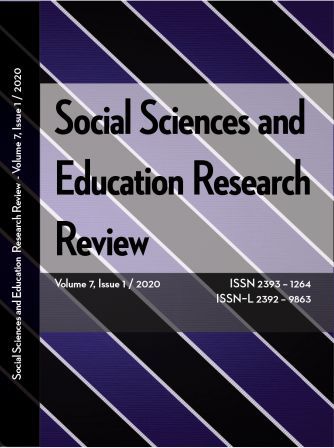PREVALENCE AND CONSEQUENCES OF ALCOHOL USE ON SCHOOLING AMONG ADOLESCENTS IN GENDER-SPECIFIC SECONDARY SCHOOLS IN ONITSHA EDUCATION ZONE, ANAMBRA STATE
PREVALENCE AND CONSEQUENCES OF ALCOHOL USE ON SCHOOLING AMONG ADOLESCENTS IN GENDER-SPECIFIC SECONDARY SCHOOLS IN ONITSHA EDUCATION ZONE, ANAMBRA STATE
Author(s): Elizabeth Ifeoma Anierobi, Mary Nneka Nwikpo, Kingsley Chinaza Nwosu, Nkechi Uzochukwu OkekeSubject(s): Educational Psychology, Developmental Psychology, Substance abuse and addiction, Health and medicine and law, Sociology of Education
Published by: Editura Sitech
Keywords: alcohol use; brands; prevalence; consequences on schooling; adolescence;
Summary/Abstract: This study was carried out to determine the male students’ brands of alcohol, the prevalence of alcohol use and consequences on schooling among adolescents in gender-specific secondary schools in Onitsha Education Zone. The descriptive survey design was adopted for the study. The study was carried out in Onitsha Metropolis and all the boys public secondary schools were used in the study. The population consisted 936 senior secondary class 2 (SS2) male students in the 4 boys secondary schools in Onitsha Metropolis. Through random sampling technique, 50 students were sampled from each of the 4 schools giving a total sample size of 210. A researcher-developed instrument was used for data collection titled “Alcohol Use Questionnaire (AUQ)”. Validity of the instrument was determined by three experts in the Faculty of Education, Nnamdi Azikiwe University, Awka. The reliability of the instrument was determined using the Cronbach Alpha and an alpha coefficient of 0.81 was obtained which was considered high, therefore, the instrument was considered reliable for use. Results indicated that even at secondary level of education, male students have choice brands of alcoholic drinks. Though most of the students indicated that they are low to moderate drinkers, alcoholic consumption was perceived to have negative impacts on the students’ attention to their studies. It was recommended that parents, counsellors and the media should be involved in the fight against alcohol use among secondary school students through productive intervention program.
Journal: Social Sciences and Education Research Review
- Issue Year: 7/2020
- Issue No: 1
- Page Range: 91-108
- Page Count: 18
- Language: English

